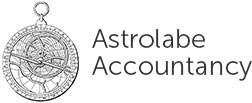COVID-19 Business Update – 8 October 2020
 Welcome back to our Weekly Digest. We hope you and your family are safe and doing well. Read on for this week’s update.
Welcome back to our Weekly Digest. We hope you and your family are safe and doing well. Read on for this week’s update.
Federal Budget 2020 Released
The Federal Budget was released earlier this week. Here’s a quick rundown of the key points:
- This budget is based on economic assumptions including that there will be a COVID-19 vaccine rolled out by the end of 2021.
- Asset write off – businesses that make new investments will be able to write off the entire cost in one year, rather than depreciating the asset over several years. Businesses with a turnover of up to $5 billion will be able to write off the full value of any eligible asset they purchase up to $150,000.
- Cash payments for pensioners. Pensioners and others on government support will receive tax-free payments of $250. This includes those on Disability Support Pensions and Carer Allowances. Find the full list here.
- COVID-19 health measures, money for aged care and NDIS. As expected, the Government is putting billions towards COVID-19 vaccines, mainly the University of Oxford and University of Queensland trials.
- Mental health support increases – the number of Medicare-funded psychological services doubled from 10 to 20. More announcements will come.
- A $240 million Women’s Economic Security Statement was unveiled in the budget.
- Funding for Infrastructure and Construction. $7.5 billion has been announced for national transport infrastructure. It is aimed at boosting state and territory projects that are currently in the planning phase. Also, the $688 million HomeBuilder scheme gives cash grants for people to renovate or build new homes and builders will benefit from extra support for first home buyers.
- Manufacturing- $1.3 billion has been allocated to boosting Australia’s manufacturing sector and securing supply lines.
- No changes to JobKeeper or JobSeeker.
Tax Cuts
The Government will bring forward its planned tax cuts meaning millions of Australians will have more money in their pockets, potentially from the end of October. The tax cuts scheduled to start in July 2022 will now start from July this year.
- Under the plan, the upper limit of the 19% personal income tax bracket will rise from $37,000 to $45,000 and the 32.5% marginal tax rate upper threshold will lift from $90,000 to $120,000.
- The tax plan means people who earn between $45,000 and $90,000 will take home an additional $1,080 this financial year.
- Workers who earn more than $90,000 will take home up to $2,565 extra, with people earning more than $120,000 receiving the maximum benefit.
- The low and middle-income tax offset, currently worth $255 for a worker on $37,000 and $1,080 for those earning between $48,001 and $90,000, will also remain.
The Government hopes Australians will spend the additional cash, to help offset the economic activity lost this year.
JobMaker Hiring Credit scheme
While there are no changes to the JobKeeper scheme set to send in March 2021, a fresh wage subsidy program called the JobMaker Hiring Credit has been announced.
The JobMaker Hiring Credit will partially subsidise the wages of young employees who are hired from 7th October 2020. As always, there are some conditions for both employers and employees to meet.
Employers will be able to claim $200 each week for every employee hired after 7th October 2020 aged between 16 and 29, and $100 each week for every employee aged between 30 and 35.
Retailers Call for $6000 Small Business Grant to Set Up Online Stores
The National Retail Association is calling for a $6,000 e-commerce assistance package for every small business impacted by COVID-19 to help them sell their products and services online.
According to the latest Australia Post statistics, online shopping is booming in the country. August 2020 was the biggest month in Australian online shopping history.
If you need personalised advice to establish or strengthen your business’ online presence, feel free to leave us a message. We can help you pivot amid these difficult times and keep your business afloat.
$800m Digital Business Plan to Drive Economic Recovery
The Australian Government has announced a Digital Business plan to enable businesses to take advantage of digital technologies to grow their businesses and create jobs in the wake of COVID-19. PM Scott Morrison and Treasurer Josh Frydenberg announced the almost $800 million scheme on Tuesday. This will facilitate doing more business online in a post-pandemic world.
Under the plan, the government will accelerate the rollout of Australia’s 5G network. They will boost the digital capacity of the agriculture, manufacturing, mining, logistics and financial sectors. Australians will be able to register a new business in 15 minutes using online government services.
If you need our expert advice on how you can start a business or pivot to adapt to the crisis, don’t hesitate to message us.
Major Overhaul to Bankruptcy Laws
After the major changes to the JobSeeker and JobKeeper programs, Australia’s bankruptcy laws have been overhauled, throwing a lifeline to struggling businesses amid the COVID-19 crisis.
Under the proposed changes, businesses with liabilities of less than $1 million can keep operating while they come up with a debt restructuring plan, rather than be placed in the hands of administrators.
The new rules which will become effective from 1 January 2021 follows the government’s decision earlier this month to extend its temporary insolvency and bankruptcy protection rules until the end of 2020.
Supporting Apprentices and Trainees Wage Subsidy Extended
The Supporting Apprentices and Trainees wage subsidy has been expanded and extended to include medium-sized businesses who had an eligible apprentice in place from 1 July 2020.
Eligible employers will receive a wage subsidy of up to 50% of the wages paid until 31 March 2021. This is worth up to $7,000 per quarter, per eligible apprentice or trainee. The subsidy should help manage cash flow challenges. Subsidies will also be available to any new employer who re-engages an eligible apprentice displaced by an eligible small- or medium-sized business.
This may be of particular interest to employers who are not eligible for the JobKeeper extension. For professional assistance in applying for this wage subsidy or any other funding assistance, feel free to contact us.
Business Resilience Package for Victorian Businesses
The Victorian government is investing $3 billion in cash grants, tax relief, and cashflow support to aid businesses hit by the tight restrictions and help them prepare for COVID Normal. There are three types of support in this package: Business Support, Business Adaptation, and Waivers and Deferrals.
Included in Business Support is the third round of the Business Support Fund for small- and medium-sized business ($822 million), with applications opening on 18 September 2020.
Meanwhile, Business Adaptation involves funding, tools, and resources to help businesses adapt to COVID Normal. Tax and cashflow support amounting to $1.8 billion will be provided by the government under the Waivers and Deferrals scheme.
For a detailed rundown of the inclusions of the Business Resilience Package, click here. Let us help you assess your eligibility and gain access to government support! Get in touch with us so we can schedule a consultation.
Sole Trader Support Fund
The Victorian Government has announced the Sole Trader Support Fund for eligible non-employing businesses affected by COVID-19 restrictions. Under this scheme, sole traders will receive a grant of $3,000.
Grant applications will open in the coming days and the full list of eligibility criteria will be published soon. We will keep you updated as soon as more information is available.
Government-backed COVID-19 Loans Extended
The government is extending its small business COVID-19 loans scheme until June 2021. If you need help to access these loans or you want to find out if you are eligible, don’t hesitate to drop us a message.
Government Launches Business Continuity Website to Support Businesses Amid COVID-19
The Australian Government has launched the Australian Business Continuity website to support businesses with staff working remotely amid the pandemic.
The site provides free practical tools for remote communications, collaboration, workforce management, and video conferencing, as well as advice on how to best use teleworking services.
The Future of Work in the Post-Pandemic World
With social restrictions intended to curb the spread of COVID-19 still in place, the way we work and conduct business have changed significantly.
Here are some of the most notable ways COVID-19 can shape the future of work temporarily or for the long term, according to Gartner.
- Increase in remote working
Companies will shift to more remote work operations and will collaborate digitally. - Expanded data collection
Remote workers will be monitored more in terms of productivity, employee engagement, and well-being. - Contingent worker expansion
Companies will expand their use of contingent workers to maintain more flexibility in workforce management in the post-pandemic world. Other job models such as talent sharing and 80% pay for 80% work will also be introduced. - Expanded employer role as social safety net
Employers will play a greater role in their employees’ financial, physical, and mental well-being. Support includes enhanced sick leave, financial assistance, adjusted hours of operation and child care provisions. - Transition from designing for efficiency to designing for resilience
There will be greater emphasis on building a more resilient business. This is one that is flexible and can respond or correct course quickly with change.
Get in touch
Contact us if you have any questions.
